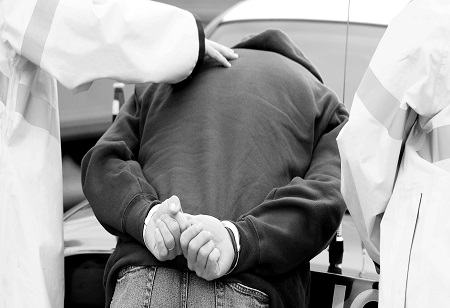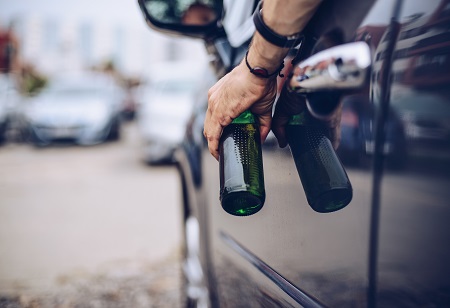How To Reduce DUI Charges
By Thomas, content writer
 People make mistakes. However, only a handful of errors can be as severe and regrettable as driving under the influence (DUI). Regardless of where you are, strict DUI laws are in place and can have a lasting impact on your life—from putting a blot on your social status to dooming your job and housing applications.
People make mistakes. However, only a handful of errors can be as severe and regrettable as driving under the influence (DUI). Regardless of where you are, strict DUI laws are in place and can have a lasting impact on your life—from putting a blot on your social status to dooming your job and housing applications.
With such life-changing consequences, you want to present the strongest defense possible and get the charges reduced. This article shares five methods to mitigate the damages in drunk driving lawsuits.
1. Highlight Legal Lapses
Some DUI convictions may have several legal lapses, which can help reduce your charges. In general, strict legal regulations apply to every aspect of a DUI citation, from when a police officer stops you to doing the DUI test and arresting you.
A skilled DUI lawyer can help build a strong argument and defense to challenge evidence's admissibility, reliability, and strength as part of their efforts to obtain a more favorable outcome at the same time ensure that justice is delivered.
Some of the legal lapses a lawyer may challenge include:
- Illegal Or Improper Traffic Stop
If the stop was improper or unlawful, a judge could find that everything after the stop, including the breathalyzer evidence, was the ‘fruit of the poisonous tree.’ This legal principle means that an illegal traffic stop can have a domino effect that knocks down the whole case.
An illegal stop can be many things, for instance, if a police officer stops your car because of your gender, race, or the fact that you were in a club area.
- Miranda Rights Violations
If the arresting officer didn’t recite your Miranda rights, your lawyer might ask the judge to rule out any incriminating statements or admissions you made. Any admissible evidence, such as the breathalyzer evidence, will be excluded when reviewing your case.
- Test Result Validity
Breathalyzers can malfunction. Similarly, a police officer can make mistakes when doing blood alcohol tests on drivers. These errors can create doubt about test results' reliability and accuracy, which can help reduce DUI charges.
2. Take A Plea Bargain
A plea bargain means you agree to the DUI charge in return for a reduced sentence. The court may consider a plea bargain if the case has shortcomings, such as  insufficient evidence due to refusal to provide blood or breath samples or the lack of probable cause for stopping you.
insufficient evidence due to refusal to provide blood or breath samples or the lack of probable cause for stopping you.
If you choose a plea bargain, the court may reduce your DUI charges to reckless or wrong-lane driving. This helps save you from getting a DUI citation on your record. That said, consult your attorney before agreeing to a plea bargain. In some states, a reckless driving charge carries harsher penalties than a first-offense DUI.
3. Attend Drunk-Driving Education
If you have a DUI charge, most states allow you to complete some form of a drunk-driving education program instead of more severe charges and penalties such as jail time. The classes explore the dangers of driving under the influence and the effects of drugs and alcohol on the body.
In some states, a drunk-driving education is a mandatory element of a DUI probation or sentence, but others offer it as a mitigating option. Also, in most DUI convictions, drivers lose their license for a specific period. However, you can reinstate your license sooner with a DUI education class.
4. Accept Probation
If this is your first DUI offense, you may be eligible for probation instead of prison or jail time. Most states also offer probation if you don’t have any criminal records. If you accept and complete probation, you won’t have to face a DUI conviction.
Probation may include:
- Substance abuse evaluation
- Drunk-driving education
- Court fines
- Probation fees
- Random drug testing
- Meeting with a probation officer
5. Attend A Rehabilitation Program
As mentioned before, you may not have to suffer jail time if it's your first DUI offense. However, you’ll likely face jail time from a few days to a few years for repeat offenses or if the DUI case involves injury or accident.
One way to reduce your sentence is to agree to attend a court-mandated rehab program. Most rehab programs are inpatient, meaning you must stay at that facility. Also, you need to finish the treatment and maintain sobriety to fulfill your sentence.
Takeaway
Facing a DUI charge has long-term and severe consequences. From hefty fines and loss of driving privileges to a criminal record and time behind bars, a DUI conviction will haunt you for the rest of your life.
However, it doesn’t mean that you can’t reduce your charges. By following the above tips, you can at least reduce the severity of consequences for your DUI charge, ultimately mitigating the damage it can do to your life.




